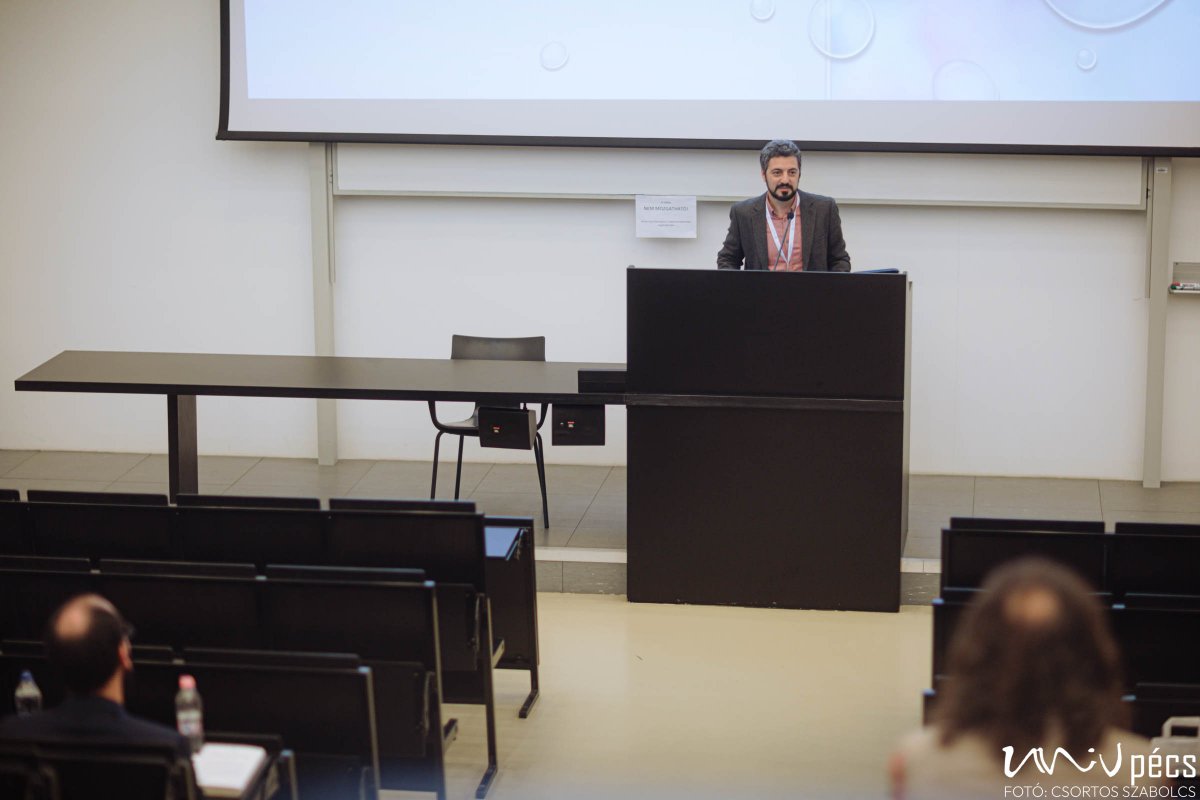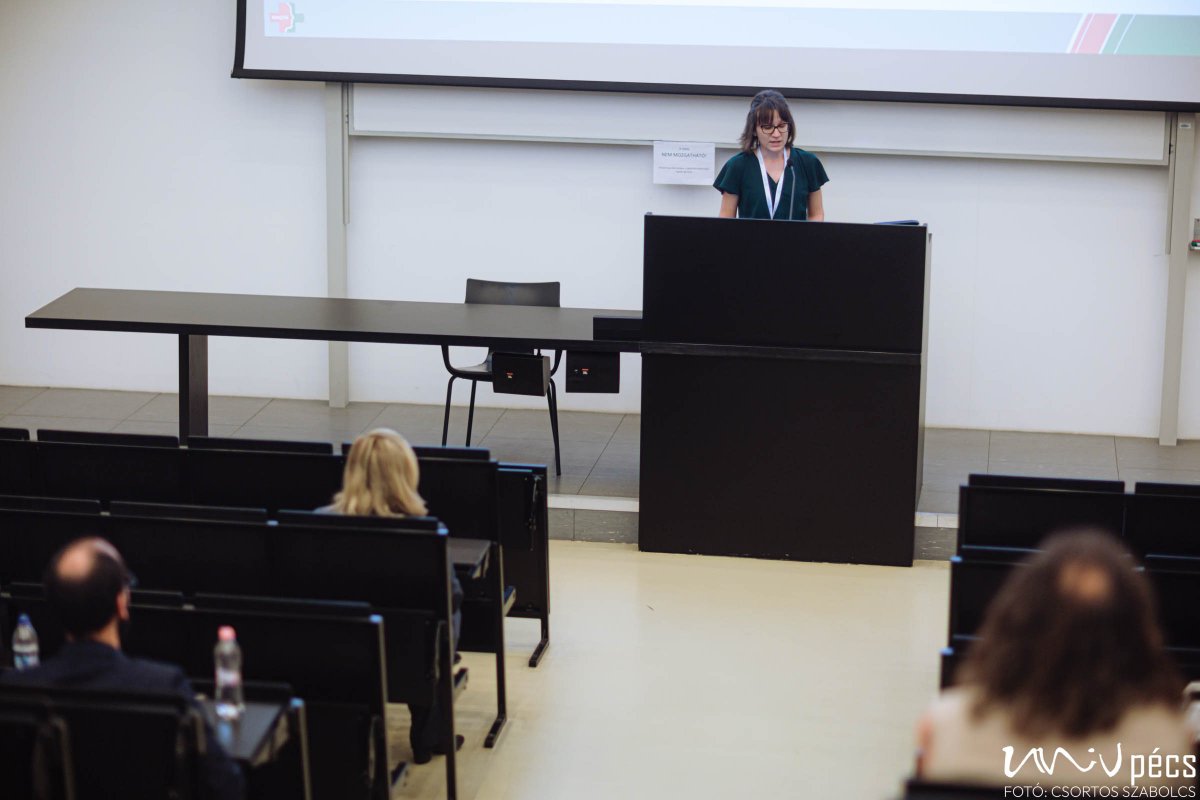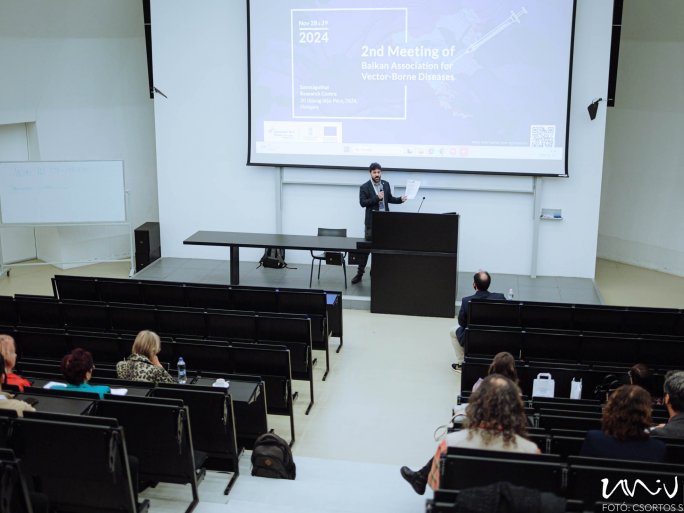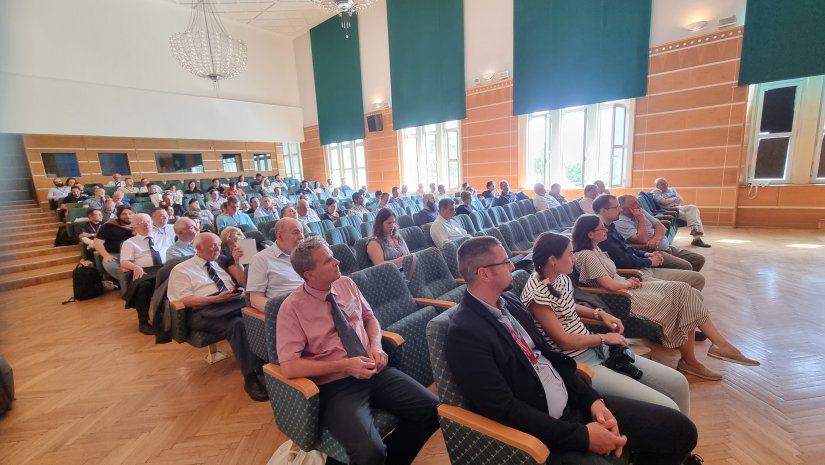The second meeting of the Balkan Association for Vector-Borne Diseases took place on November 28-29 at the Szentágothai Research Center of the University of Pécs. The event gathered experts from across the region to share insights and strategies for addressing the challenges posed by vector-borne diseases, with a particular focus on mosquitoes and their growing public health implications.
The first session of the meeting featured prominent speakers, including Dr. Ana Klobučar, a medical entomologist from Andrija Štampar Teaching Institute of Public Health; Dr. Perparim Kadriaj, a vet entomologist from Institute of Public Health; Dr. Viktoria Cabanova from Slovak Academy of Sciences; Dr. Albiona Rashiti Bytyçi, a medical doctor specialized in epidemology from the National Institute of Public Health of Kosovo, Dr. Anna Nagy, an epidemologist from National Centre for Public Health and Pharmacy, and Dr. Goran Vignjevič from Josip Juraj Strossmayer University of Osijek. The discussions centered on current research, policy recommendations, and the need for regional collaboration in mitigating mosquito-related health risks.

Dr. Goran Vignjevič opened his presentation with the topic of mosquito population management in Croatia, emphasizing the urgent need for action. “We have massive mosquito populations, particularly in regions with wetlands and rivers. While we have strong legislation on paper, its implementation is where we face significant hurdles,” the scientist explained.
To address these challenges, Dr. Goran Vigniević
proposed the establishment of a centralized Mosquito Control Center. “This center will not only focus on controlling mosquito populations but also on research, development, and public education,” The assistant professor said, stressing the importance of early detection of diseases such as the West Nile virus.
Dr. Goran Vignjevič highlighted the success of a recent surveillance project: “We detected the virus in mosquitoes a month before the first human cases appeared, proving the value of early intervention.”

Dr. Anna Nagy from the National Centre for Public Health and Pharmacy emphasized the need for regional cooperation to tackle vector-borne diseases effectively.
“Mosquitoes and the viruses they carry don’t recognize borders, so our efforts must be unified,” she said.
Dr. GoranVigniević echoed this sentiment, citing research that revealed similarities between virus strains in Croatia and Hungary, likely due to migrating birds. “This is why cross-border collaboration is vital,” he added.

The proposed Mosquito Control Center, which has received backing from European funding initiatives, aims to act as a hub for research and coordination across the Balkans. “We’re optimistic about securing funds and expanding partnerships with neighboring countries to create innovative, region-wide strategies,” the professor said.

The event provided a platform for sharing knowledge and fostering partnerships, underscoring the importance of both scientific advancements and public awareness. As Dr. Goran Vignjevič concluded,
“By working together, we can not only control mosquito populations but also prevent the spread of diseases, protecting communities across borders.”
The meeting marked an important step toward a more unified and effective approach to combating vector-borne diseases in the Balkans, showcasing the power of collaboration and innovation in addressing global health challenges.






